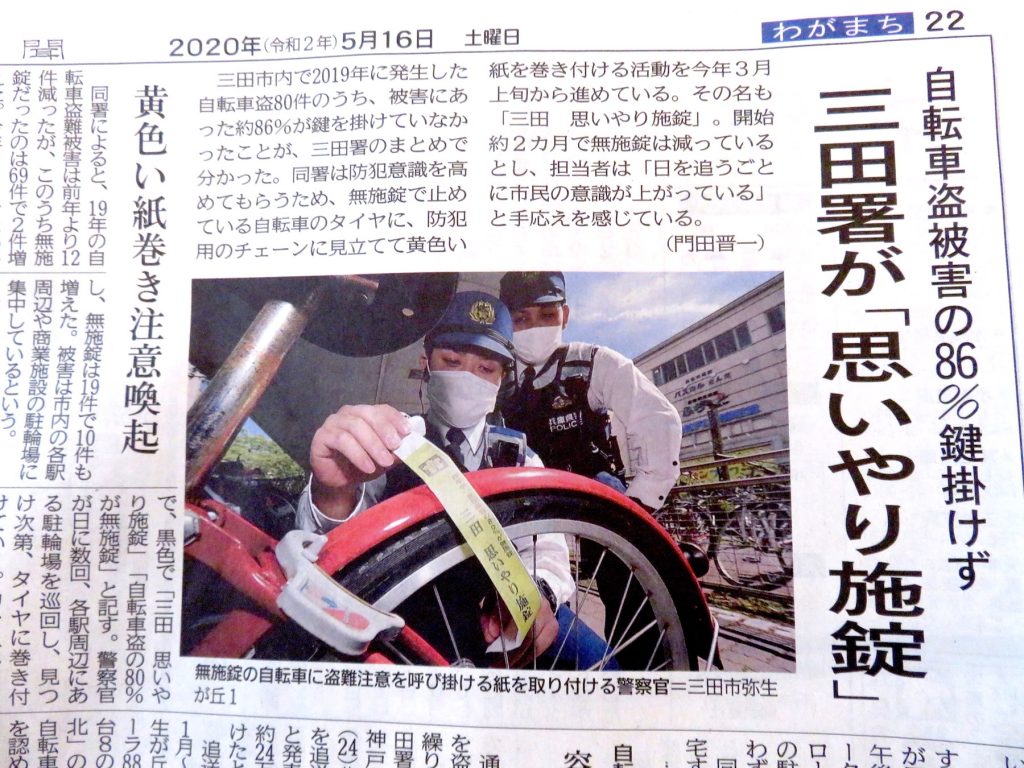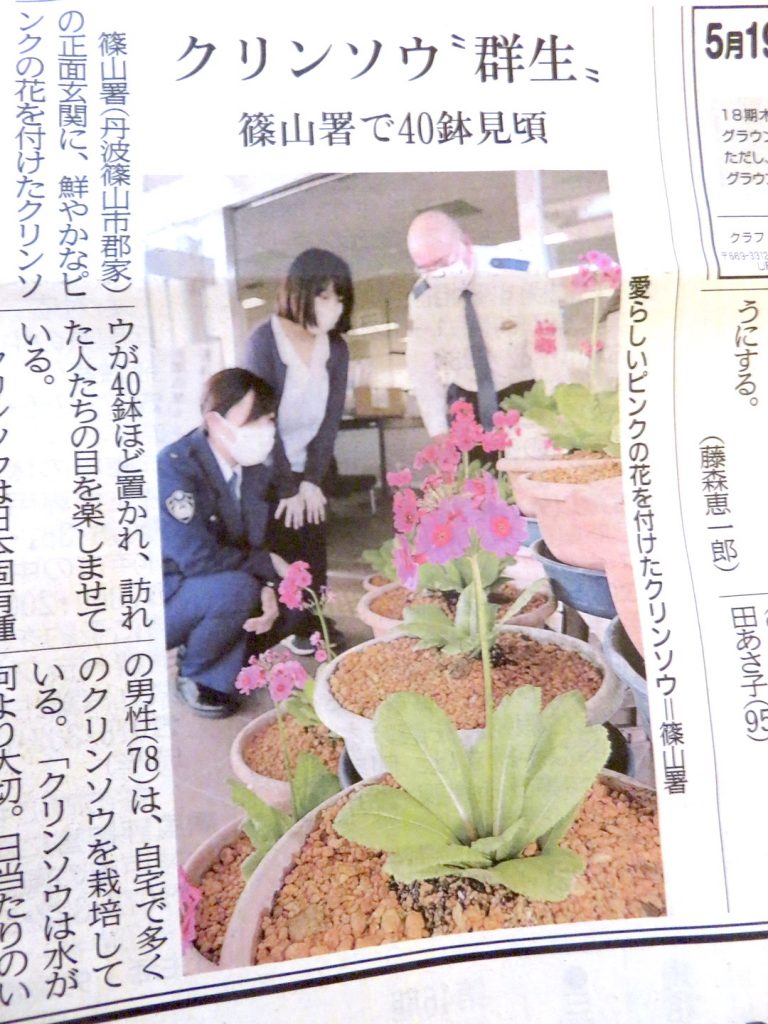
Let’s face it. Crime is universal. Wherever you find human beings, you’ll find individuals in violation of the carefully-crafted laws of the land. Why just this week here in Japan, a lady in Kyoto walked out of a pet store with a cat. Granted, it was not a heist on the scale of the Great Train Robbery. In fact, the lady was convinced the cat was actually her cat, one that had recently run away. A case of mistaken cat identity? Covid-19 derangement syndrome?
But no matter how you look at it, policing is a tough job.
So . . . while police in the U.S. are killing fellow citizens, and especially people of color are being terminated by the law enforcement officers who are supposed to protect them, what are the police here in Japan doing?
The story pictured at the head of this article is a perfect example. Are they stopping waves of armed terrorists? Are they cracking down on drug traffickers and drug addicts who in need of their next fix are snatching purses from helpless old ladies? Are they interdicting elicit trade in contraband which could send the Japanese economy into a death spiral?
Actually, these officers are putting a notification on a bicycle! The owner of this bike — brace yourself — failed to lock it, a clear invitation for a hardened bicycle thief to cart it off and then God only knows. Ride it? Sell it? Ship it to North Korea as a gift to Kim Jong-un? The paper band around the tire is a reminder that it’s a good idea to lock a bike.
Of course, the world is in great turmoil right now. The coronavirus pandemic has everyone on edge. In the U.S. people understandably let off steam by burning down police stations, as a message to authorities that they should do a better job, even though now they don’t have a proper place to organize their police work.

By contrast, here in my charming home town of Tambasasayama, the police embrace a slightly different narrative. Since things that grow can offer both calm and beauty, they now have 40 flowering plants in the lobby of the main police station. Not surprisingly, people like this and some just stop by for no other reason than to enjoy the display of flora. No one has been seen outside the building with a torch and a trunk full of Molotov cocktails.
I guess some cynics would characterize this as police power merging with flower power. Or the cops trying to put an amicable face on the often unpredictable and brutal business of enforcing the law and keeping the peace. Whatever the reason, we have to recognize the harsh realities.
It’s easy for crime to take hold, spread, and run roughshod over a society. It’s important to draw the line, never make excuses or compromise.
Take jaywalking. Everyone knows that jaywalking is a “gateway crime”. Statistically, every person who has murdered, robbed, raped, dealt drugs, pimped, cheated on their taxes, or thrown someone off the top floor of a skyscraper, has jaywalked. In the minds of tough law enforcers, this is proof that jaywalking, if unchecked, leads to truly reprehensible and villainous behavior.
Thus, in the U.S. the police take a rigid stance on jaywalking. If you’re too lazy to walk the extra few steps to find a proper pedestrian crosswalk, it can end badly.
Hmm . . . I’m not sure why I brought this up.
Oh, I remember!
You see, the Japanese don’t jaywalk or cross against a signal. They dutifully seek out an official crosswalk, and even if there is absolutely no traffic in sight for several kilometers, they wait until the walk sign goes on before proceeding. Which is why there’s practically no crime here. No jaywalking. No murder or burglary, kidnapping or gang banging. Or very little. This strict regard for jaywalking law is, of course, reinforced by an abiding respect for the lives and property of others, as I’ve written about elsewhere.
Let me close this by referencing a video of the Japanese police in action here. This was a difficult “traffic management” situation which in my opinion they handled admirably.
[ This originated at the author's personal website . . . https://jdrachel.com ]
Life In Japan: Police Power II